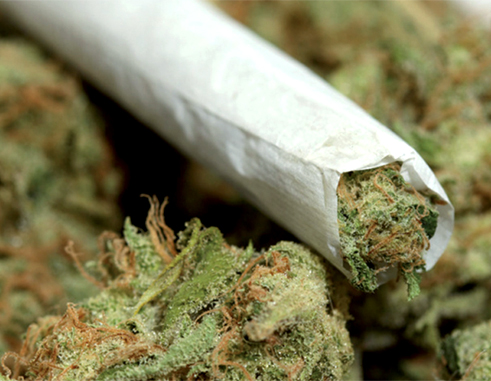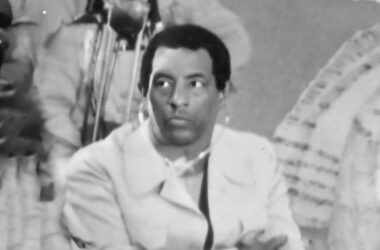
THE celebrated French poet, novelist and dramatist Victor Hugo famously wrote that “nothing is more powerful than an idea whose time has come”. His words, poetic as they are, may currently be finding resonance with regional pro-legalization advocates since CARICOM has agreed to review its approach to marijuana.
Following the conclusion of “The Twenty-sixth Inter-sessional Meeting of the Conference of Heads of Government of the Caribbean Community”, a CARICOM press release dated March 2, 2015, states: “Heads of Government agreed on the composition of the Marijuana Commission which is expected [to] begin its work soon to look into the social, economic, health and legal issues surrounding the use of marijuana and to consult with stakeholders to get views on the issue. The Commission has been established to determine whether there should be a change in the current drug classification of marijuana thereby making the drug more accessible for all types of usage including religious, recreational, medical and research.”
However, as CARICOM explores whether or not the time has come to decriminalize marijuana, two important tenets of democracy must be upheld: participation and accountability. Firstly, citizens of the Caribbean Community must be allowed to voice their interests and play an active role in the current process. Secondly, if CARICOM takes a decision to decriminalize marijuana, it must be held accountable for addressing any and all social ramifications that follow.
Pro-legalization advocates have stated that the time has come for marijuana to be decriminalized. They have pointed out that the classification of marijuana as a dangerous drug has led to the incarceration (at great cost to the state) of numerous people who were caught with small quantities of the drug which was intended for personal use. Further still, they have asserted that marijuana is not addictive, and has not been scientifically proven to cause mental or physical harm.
However, there is evidence that shows marijuana causes damage to the user. Consider the following:
* A 1987 study by Andréasson, et al. found that marijuana contributes to psychosis and schizophrenia.
* A 2013 study from the University of Maryland School of Medicine found that: “Regular marijuana use during adolescence, but not adulthood, may permanently impair cognition and increase the risk for psychiatric diseases, such as schizophrenia.”
* A 2014 National Institute on Drug Abuse report, summarizing a long-term Duke University study reported that: “People who began smoking marijuana heavily in their teens lost an average of 8 points in IQ between age 13 and age 38. Importantly, the lost cognitive abilities were not fully restored in those who quit smoking marijuana as adults.”
* A 2014 study published in the Journal of the American Heart Association found that marijuana causes heart attacks and diseases in the arteries, even among the young.
* A 2014 study found that marijuana use during pregnancy can impede development of the baby’s brain.
Notwithstanding the findings of the aforementioned studies, pro-legalization advocates have claimed that marijuana should be legalized because it has valuable medicinal uses. However, to the extent that marijuana has medicinal uses, rather than decriminalization, its use as a medicinal drug can be made available with regulations like any other prescription drug, whereby it can only be purchased from a pharmacy by a patient who has obtained a prescription from a doctor.
Given the abysmal failure of the prohibition of alcohol in the United States of America between the 1920s and early 1930s, there are those who contend that in the same way that it is legal to buy, sell, and use tobacco and alcohol, so too should individuals be able to buy, sell, and use marijuana. This argument however, raises two key points, the first being that Prohibition was able to deter consumption in some way, as alcohol use dropped by 30% to 40% during Prohibiton (Miron&Zwiebel, 1991), and the second being that by decriminalizing marijuana for adults, drug-dealers may target teenagers to supplement their loss of revenue. This would then lead to an increase in marijuana use amongst teenagers. There is also the possibility that decriminalization could also lead to an increase in marijuana use amongst adults, as research by the National Survey on Drug Use and Health (NSDUH) found that legal drugs are used far more than illegal ones because they are accessible and available. This is supported by the NSDUH finding that 52% of Americans use alcohol. Thus, it can be reasonably assumed that marijuana use will increase in CARICOM if it is decriminalized.
An assumption that raises a series of questions:
If CARICOM chooses to pursue decriminalization, will it enforce strict laws banning the promotion, marketing and advertising of all marijuana and marijuana-related products, especially food and candy? Or will the citizens of CARICOM bear witness to profit-driven companies creating, and aggressively marketing marijuana themed products, such as “weed brownies” and “pot-tarts”?
If CARICOM chooses to pursue decriminalization on the strength of the argument that decriminalization and legalization will increase tax revenues to the tune of millions of dollars, has it considered that any additional revenue gained would be outweighed by the increased social and healthcare costs? For example, an Obama Administration report summarizing a Centres for Disease-funded study, stated that: “The cost to society of alcohol alone is estimated to be more than 15 times the revenue gained by their taxation.”
If CARICOM chooses to pursue decriminalization, will it gather data showing how many users of marijuana were arrested, charged and convicted of crimes in the ten years prior to marijuana being decriminalized, and each year since it has been decriminalized, so that its citizens can evaluate whether or not there has been an increase in the number of criminal offences that have been committed by users of marijuana since its decriminalization? Since it may be true to say that a significant underlying factor or contributor to criminal offences in the Caribbean Community is due to marijuana consumption, combined with other circumstances.
If CARICOM chooses to pursue decriminalization, will it allocate resources towards the development and implementation of an effective communication for social and behaviour change program with a strong social marketing component aimed at:
i. Preventing potential users (children, teenagers and adults) from becoming users;
ii. Motivating existing users of marijuana to stop using the drug?
Undoubtedly, there are benefits to keeping marijuana illegal. As CARICOM and its Marijuana Commission moves forward, it is hoped that there will be an informed approach, guided by careful thought and weighted considerations, and defined by listening to its citizens, rather than pronouncements which fail to take into account the full length and breadth of the issue.














The negatives you pick out, I caveat each time this debate comes up on here. It’s bad for the undeveloped mind. Nobody in their right mind should be allowing anyone under 21 to go near it.
Once you’ve got that out of the way, there’s very little of your piece which holds up. Let us consider what I propose as an adequate framework, briefly:
1. proper zoning and licensing for farmers who wish to do it; subject to appropriate guarantees made as to non use of fertilisers, chemical use etc. They will pay an annual fee for this right, let us say 1,000 dollars a year. I do not know how many should be permitted, but if we start at 1,000 people, that would be a 1 million dollars straight up (money in to the treasury). They in turn, will only be allowed to sell to registered vendors, of which more below.
2. laws regulating the amount that can be carried for personal possession. Carrying it will be permitted, and it will only be allowed to be used in certain ‘coffee’ shops, at home and NOT in a public street or on the block. Obviously if you are in the countryside, a slightly more relaxed approach could be taken. Each user will have to pay for a license, annually of say $150. I think if people knew they could have a smoke legitimately without hassle from the authorities, they will pay this. If we assume 10,000 locally, who purchase one (not including money from fines) that would be 1.5 million EC in. (2.5 million in so far)
These coffeeshop owners will also pay an annual fee to the treasury, and will be licensed to ensure they only sell to those over 21 and are not intoxicated etc. Any breaches of the code will result in a large fine, and revocation of the license. The license should be granted to those of good standing, and in areas away from schools. Let us say we have 100 licences to start with nationally, selling at $10,000 – that’s one million EC into the treasury. Think of all the other money coming in via shop refurbishment, legal fees, drinks purchases etc. (3.5 million in so far)
3. You then start charging tourists $100 EC for a week’s permit. This allows them to go to the coffeeshops. Given how popular amsterdam is, USA now on the bandwagon, I would imagine the take up would be large. Official 2014 flight arrivals alone were 338,158. Let us assume just 10% of the existing arrivals bought a license (more would choose St Lucia as a destination in all likelihood) that is 33,000 people paying a fee, that would be at least 3.3 million EC into the treasury. You would likely get more in practice, plus you would get fines for those who you catch without a license.
Just on those high level and conservative calculations, I think it would bring in nearly 7 million EC a year. That is just pure taxes from licenses, doesn’t even include the ancillary benefits of more people in work, and the resulting VAT contributions as a result.
What do people think of this?
……YEAH!….pathology for an attractive return!!
The arguments used in both contending views; for and against legalization and decriminalization are both systemic and as such does no justice in addressing the associated social issues… They both sound like the well propagated views that we have heard time and again and almost come off like campaign issues in a political debate…
History, Culture, Religion, even Horticulture should also become “Integral” to this debate, only then can an “enlightened” discussion be had…
Yeah. Good argument. The writer needs to focus on cigarettes, cigars and alcohol if she wants to focus on a medically and socially destructive drug. These are basically unregulated and the negative consequences of their use are bourn by us all. Fast foods, chemically rich foods and GMOs also warrant a look for negative side effects – obesity and diabetes etc – for which taxpayers foot the bill.
The writer should note there are many drugs freely available on the shelves of pharmacies that are just as dangerous as cannabis and many drugs being prescribed that are even more dangerous. Many adults are trusted to use these drugs without exposing minors to it.
Cannabis has much more benefits and is much less dangerous. Truth be told it is already sold widely and almost legally anyway. The main difference of legalisation or decriminalisation – which ever we choose – will be more regulation and diversion of some of the profits into government coffers.